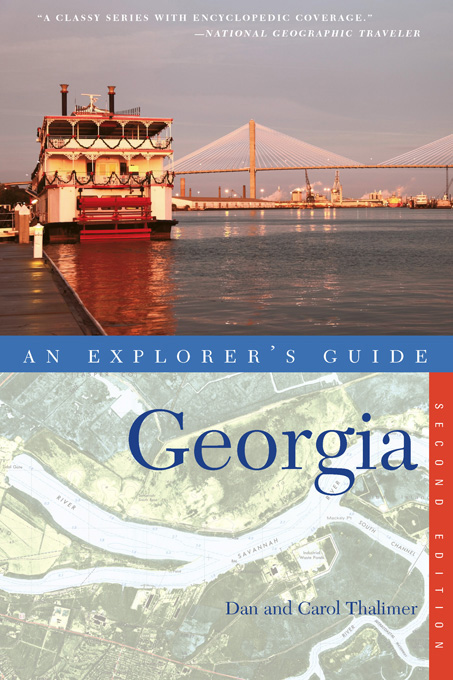

AN EXPLORERS GUIDE
Georgia
Carol Thalimer and Dan Thalimer
with photographs by the authors

To David Torrisi, son-in-law, husband, father, son, brother, uncle, nephew, and friend extraordinaire.
May a strong breeze fill your sails to ensure a safe journey to the other shore.
EXPLORE WITH US!
Weve lived in Georgia since 1979 and have been writing about it for newspapers, magazines, and guidebooks since 1987. In the course of living here, enjoying our state for our own pleasure, and researching Georgia for our readers, weve traveled the state countless timesconstantly seeking out the new and checking up on the tried and true. More and more communities are recognizing the value of tourism, so the number of attractions, lodgings, dining opportunities, and fairs and festivals continues to grow. We make our recommendations selectively based on years of research and personal experience.
WHATS WHERE
This section is an alphabetical listing of special highlights and other important information. Here youll find recommendations on everything from where to buy fresh seafood to where to write, call, or go online to find information about parks and camping.
LODGING
We selected hotels, bed & breakfasts, resorts, and other lodgings based on their merit. Although we may not have stayed in every accommodation, weve tried to visit each or, in some rare cases, have relied on the advice of locals in the know. Accommodations cannot pay to be included in this guide.
RESTAURANTS
Weve made a distinction between Dining Out and Eating Out. In the Dining Out category, weve generally listed more formal restaurants with entre prices higher than $20. The Eating Out restaurants are generally more casual and more inexpensive. Note that we list entre pricesyou can easily double a meal price by adding appetizers, soups and salads, desserts, and alcoholic beverages. No restaurant can pay to be included in this guide.
PRICES
Changes are inevitableespecially with information in a book, which is hopefully in use for many years. We give prices only to give you a ballpark figure for whether a lodging is inexpensive, moderate, or expensive. In almost all cases, there will be some kind of local tax added to the basic rate. When you make your reservation, you might want to check about taxes or gratuities that are added on to the basic rate.
SMOKING
Georgia has a law banning smoking in buildings open to the public. Theres still a lot of leeway, however. Large hotels, for example, may still have smoking and nonsmoking rooms available. B&Bs, which are often in someones home, are usually smoke-free for various reasons, including insurance requirements. Restaurants are generally smoke-free unless they do not admit anyone younger than 18, but they may allow smoking in the bar or in outside eating areas. If smoking is an issue because of allergies or personal preference, be sure to ask.
KEY TO SYMBOLS
 Special value. This symbol appears next to lodgings, restaurants, and attractions that are inexpensive.
Special value. This symbol appears next to lodgings, restaurants, and attractions that are inexpensive.
 Family friendly. This symbol appears next to attractions, eateries, and lodgings that are of particular value or appeal for families.
Family friendly. This symbol appears next to attractions, eateries, and lodgings that are of particular value or appeal for families.
 Handicapped access. This symbol appears next to attractions, lodgings, and restaurants that are partially or completely handicapped accessible. Note that in the case of lodgings such as bed & breakfasts, in particular, there may be a ramp to get into the building, but bathrooms may not be completely outfitted for the handicapped.
Handicapped access. This symbol appears next to attractions, lodgings, and restaurants that are partially or completely handicapped accessible. Note that in the case of lodgings such as bed & breakfasts, in particular, there may be a ramp to get into the building, but bathrooms may not be completely outfitted for the handicapped.
 Pets. This symbol appears next to lodgings, campgrounds, and attractions that accept pets. Please note that many of these have restrictions, may require advance notice, and may have additional fees associated with your pet.
Pets. This symbol appears next to lodgings, campgrounds, and attractions that accept pets. Please note that many of these have restrictions, may require advance notice, and may have additional fees associated with your pet.
We would appreciate any comments (good or bad) or corrections so that our next edition will be as complete as possible. Please write to Explorers Guide Editor, The Countryman Press, P.O. Box 748, Woodstock, VT 05091, or e-mail countrymanpress@wwnorton.com.
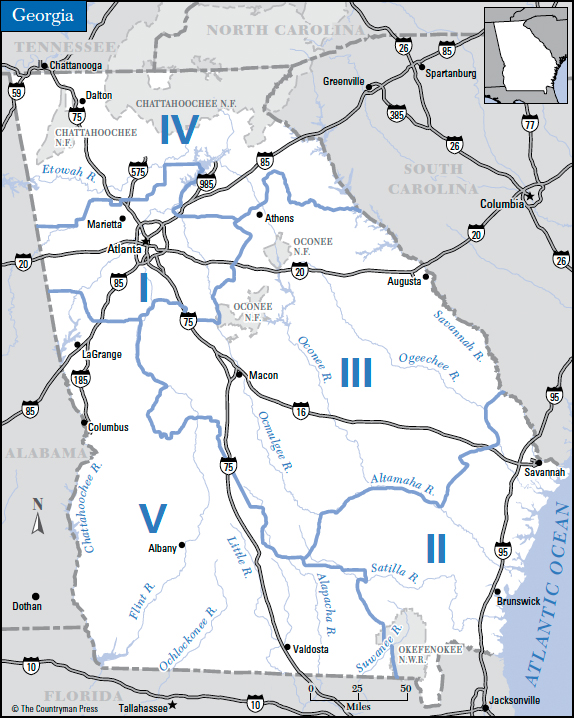
CONTENTS
This section offers some general information that is helpful to travelers but would be too repetitive to include in each individual chapterinformation about airports and airlines, car rentals, mass transit, bus and train travel, and the like. In addition, in this section we offer information about some of the states most outstanding attractions, fairs and festivals, activities, and lodgings to spur your curiosity. These brief mentions are more fully described in the pertinent chapters. In this chapter, we merely reference these without contact information; in the separate chapters, for each entry we give you the telephone number(s), website if there is one, address, hours of operation, and admission, lodging, or meal price. We also give you some information about associations and councils that might be helpful, references to other books or websites, and regulations such as those regarding fishing, hunting, smoking, building fires, and littering.
AFRICAN AMERICAN SITES In a state where a major part of the economy was once based on slave labor, where the Civil War often intruded, and where there were numerous events connected with the civil rights movement of the 1960s, its not surprising that there are many significant historical sites related to the lives and history of African Americans. The most significant of these sites and one of the most-visited attractions in the state is the Martin Luther King Jr. National Historic Site on Auburn Avenue in Atlanta. The site contains Dr. Kings birthplace and Ebenezer Baptist Church. Adjacent to the historic site is the King Center for Nonviolent Social Change, which includes the tombs of Dr. King and his wife, Coretta Scott King. Also in Atlanta is a collection of six prestigious black colleges, known collectively as Atlanta University.
Throughout the state some other significant African American sites or tours include the Black Heritage Trail Tour in Columbus, the Coweta County African American Heritage Museum and Research Center in Newnan, Hog Hammock community on Sapelo Island, the King-TisdellCottage in Savannah, Lucy Craft Laney Museum of Black History in Augusta, Morgan County African American Museum in Madison, the Mount Zion Albany Civil Rights Movement Museum in Albany, Ralph Mark Gilbert Civil Rights Museum in Savannah, Seabrook Village in Midway, and the Tubman African American Museum in Macon. Numerous festivals celebrate African American heritage.
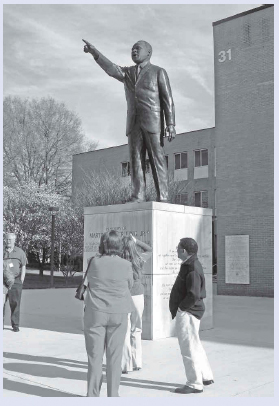
AGRICULTURAL FAIRS Outside of Atlanta and a few other large municipalities, Georgia is largely rural, with an economy based on agriculture and forestry. These industries are often celebrated at annual agricultural fairs, the largest of which is the
Next page
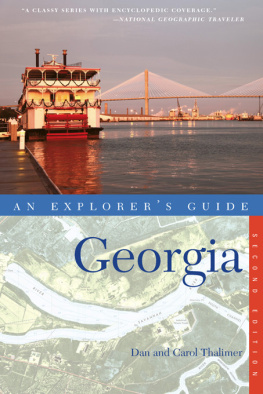

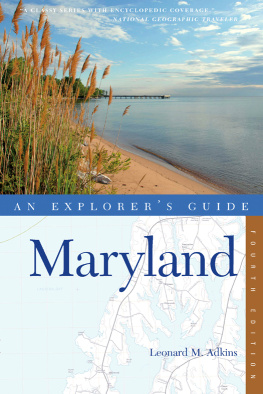
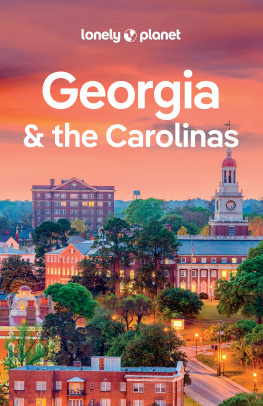

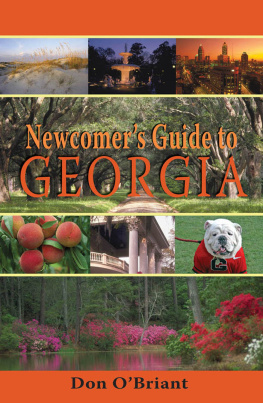

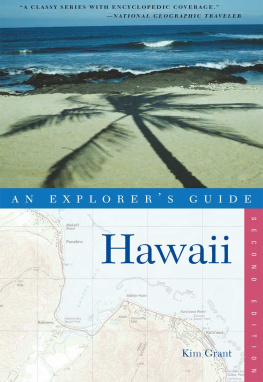



 Special value. This symbol appears next to lodgings, restaurants, and attractions that are inexpensive.
Special value. This symbol appears next to lodgings, restaurants, and attractions that are inexpensive. Family friendly. This symbol appears next to attractions, eateries, and lodgings that are of particular value or appeal for families.
Family friendly. This symbol appears next to attractions, eateries, and lodgings that are of particular value or appeal for families. Handicapped access. This symbol appears next to attractions, lodgings, and restaurants that are partially or completely handicapped accessible. Note that in the case of lodgings such as bed & breakfasts, in particular, there may be a ramp to get into the building, but bathrooms may not be completely outfitted for the handicapped.
Handicapped access. This symbol appears next to attractions, lodgings, and restaurants that are partially or completely handicapped accessible. Note that in the case of lodgings such as bed & breakfasts, in particular, there may be a ramp to get into the building, but bathrooms may not be completely outfitted for the handicapped. Pets. This symbol appears next to lodgings, campgrounds, and attractions that accept pets. Please note that many of these have restrictions, may require advance notice, and may have additional fees associated with your pet.
Pets. This symbol appears next to lodgings, campgrounds, and attractions that accept pets. Please note that many of these have restrictions, may require advance notice, and may have additional fees associated with your pet.
